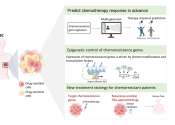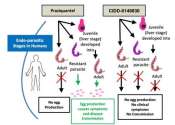UK and Portuguese study strongly suggests 'superbugs' are being passed from pets to owners
Pet dogs and cats play an important role in the spread of antibiotic-resistant bacteria, says new research presented at the ESCMID Global Congress (formerly ECCMID) in Barcelona, Spain (27–30 April).
Apr 12, 2024
0
2









